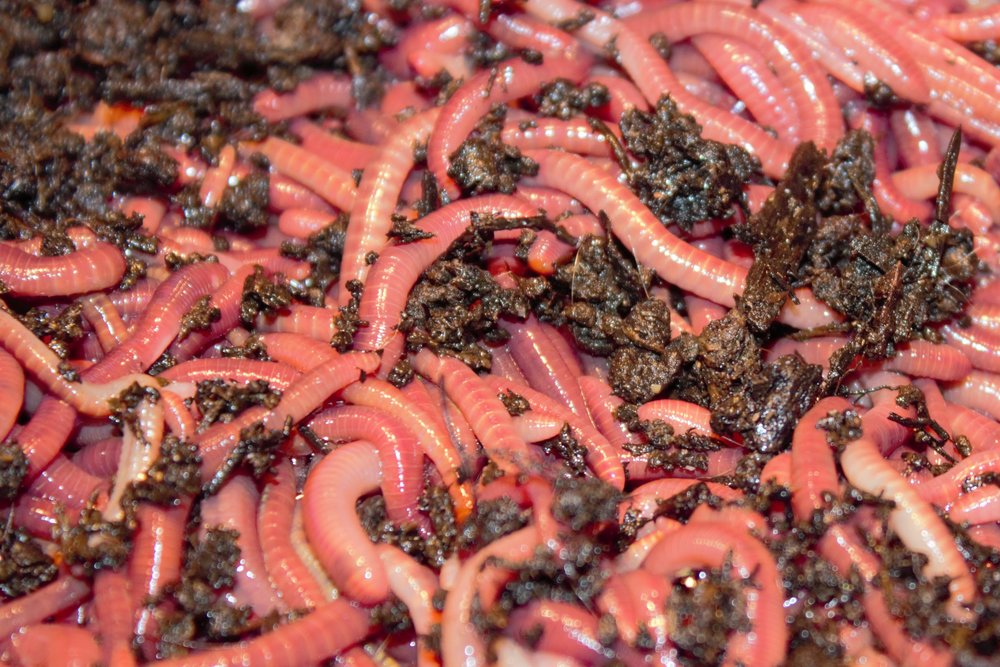Efficient red wigglers: Ideal for reducing waste
Efficient red wigglers: Ideal for reducing waste
Blog Article
Why Red Wigglers Are Necessary for Organic Farming
Red wigglers play a critical role in natural farming, mainly through their one-of-a-kind capacity to decompose organic materials and boost dirt wellness. The degree of their impact on agricultural practices and soil biology raises interesting questions concerning the future of natural farming.
Function of Red Wigglers in Dirt Health And Wellness

In addition, red wigglers enhance soil framework by creating channels as they tunnel. These channels improve aeration and water seepage, promoting a much healthier origin environment. Their task additionally helps in keeping ideal wetness degrees, which is essential for healthy plant growth.

Benefits of Worm Spreadings
Worm castings, the nutrient-rich waste matter created by red wigglers, offer as an effective change for chemical-free farming. These spreadings are abundant with vital nutrients such as nitrogen, phosphorus, and potassium, which are important for plant development. Unlike synthetic plant foods, worm castings launch nutrients gradually, offering a constant supply over time and minimizing the threat of nutrient leaching and runoff.
Furthermore, worm spreadings improve dirt framework and aeration, advertising healthier origin systems. Their high raw material material improves wetness retention, making it possible for plants to much better hold up against dry spell problems. Furthermore, worm castings have valuable microorganisms that sustain plant wellness by suppressing virus and boosting vitamins and mineral uptake.
The application of worm spreadings can lead to enhanced crop yields and enhanced high quality of produce, making them an indispensable resource for organic farmers. Their usage additionally lines up with sustainable farming techniques, adding to dirt fertility without the unfavorable environmental impacts connected with chemical plant foods. Overall, the unification of worm spreadings right into farming practices promotes a much more durable and productive ecosystem, highlighting the relevance of red wigglers in natural farming systems.

Enhancing Nutrient Cycling
(red worms)Nutrient cycling is a critical procedure in organic farming, and the combination of red wigglers plays a critical duty in enhancing this cycle. As red wigglers take in decomposing natural issue, they excrete nutrient-rich spreadings, which are brimming with useful microbes.
Furthermore, red wigglers help to increase the mineralization of nutrients, transforming them from inert forms right into bioavailable forms that plants can absorb. This procedure is critical for maintaining dirt fertility and promoting healthy and balanced crop development. The existence of red wigglers additionally encourages a varied dirt ecological community, fostering an equilibrium of nutrients that sustains various plant types.
Improving Dirt Structure
The improvement of dirt structure is vital for cultivating a healthy farming environment, and the activity of red wigglers dramatically adds to this enhancement. These earthworms play a necessary duty in aerating the dirt and developing a network of channels that assist in water infiltration and origin infiltration. As they burrow with the dirt, red wigglers separate compacted layers, enabling better oxygen exchange and promoting microbial task.
In addition, the raw material created from their waste, called vermicast, boosts soil gathering. This process produces stable globs of dirt particles, enhancing dirt porosity and lowering erosion (red wigglers). The presence of red wigglers additionally encourages the development of useful fungal networks, moved here which are crucial for nutrient uptake by plants
Promoting Sustainable Practices
Incorporating red wigglers into organic farming methods not just boosts soil wellness yet also promotes lasting farming methods. These earthworms play an essential function in vitamins and mineral biking, transforming organic waste right into beneficial garden compost that enhances the dirt. By utilizing red wigglers, farmers can properly lower reliance on artificial fertilizers, consequently decreasing chemical overflow and its damaging impacts on environments.
In addition, the consolidation of red wigglers urges the practice of recycling natural products, such as kitchen area scraps and ranch waste. This waste reduction technique not just reduces disposal costs however additionally fosters a closed-loop system where nutrients are continually gone back to the soil (red wigglers). Such practices are crucial in mitigating environment modification, as they improve carbon sequestration and decrease greenhouse gas discharges
In addition, red wigglers enhance water retention in the dirt, which is essential in times of drought. Their burrowing activities produce networks that allow water to penetrate much deeper right into the ground, thus promoting effective water use. Ultimately, incorporating red wigglers into chemical-free farming not just sustains biodiversity however likewise aligns with the concepts of sustainable agriculture, using an all natural approach to food production.
Conclusion
Finally, red wigglers play an important duty in natural farming by significantly enhancing soil wellness and fertility. Their ability to decay raw material and create nutrient-rich spreadings promotes a flourishing microbial area, which is essential for nutrition cycling. In addition, the tunneling tasks of these worms enhance soil structure and aeration, facilitating better water seepage and root development. Hence, the integration of red wigglers into farming practices is essential for promoting sustainability and boosting general dirt top quality.
Report this page